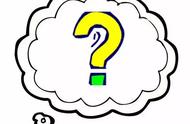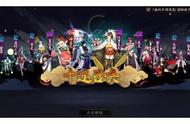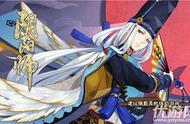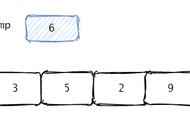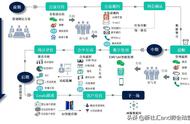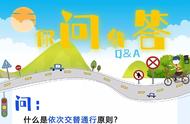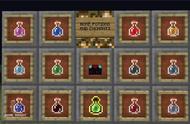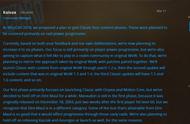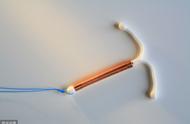Lesson 34 Steven's Report
第34课 史蒂芬的报告
1 Now it's Steven's turn to speak.
现在轮到史蒂文讲了。
1.1It's one's turn to do sth.轮到某人做某事了。
1.2take turns to do sth.=take turns doing sth.轮流做某事。
1.3in turn轮流地,依次地。
1.4turn的用法① turn 用作名词时,意为“轮流”“依次轮流的顺序”。例如:
Now it's your turn to read the text.现在轮到你读课文了。
It's my turn to use the bike.该轮到我用自行车了。
You must stand in line and wait for your turn.你必须排队等候。
② take turns 意为“替换”“轮流”;
by turns 意为“轮流地”。例如:
Please take turns to ask questions.请轮流提问。
We looked after the little boy by turns.我们轮流照看这个小男孩。
We take turns to make dinner.我们轮流做晚饭。(=We make dinner by turns.)
③take one's turn to do sth.= do sth. in turn =do sth. by turns 轮流做某事
=take turns to do sth.--take turns at doing sth.=take turns doing sth.
The nurses attended the patient in turn / by turns.
=The nurses took turns to attend the patient.
The twins take turns to make dinner.
=The twins take turns at making dinner.
=The twins take turns making dinner.
④turn 用作系动词时,意为“变得”。例In autumn the leaves turn yellow.
秋天树叶变黃。
She turned pale.她的脸变得苍白。

⑤turn 用作不及物动词时,意为“转向”“翻转”。
turn right / left = turn to the right / left
Turn right. At the end of the road you'll see the hospital.向右拐,在路的尽头就是那家医院?
Just go straight and turn left.一直往前走,然后向左拐?
Turn to Page 12 in your workbook.翻到练习册第 12 页?
He turned his face to the wall.他转过脸面向墙壁。
The road turns south outside town.此路在城外转弯向南。
⑥turn to sth./ sb.(for help)
When I am in difficulty, I always turn to him for help.我有困难时总是找他帮忙。
⑦转动,旋转
He turned the key in the lock.他旋动插进锁里的钥匙。
⑧使倒置,使颠倒;倾倒。
He turned the glass upside down.他将玻璃杯子倒置。
1.5turn的短语有:
①turn over 意为“翻过来”例如:
Tom turned over the note and read,“Come and look for me in the study”汤姆把便条翻过来读道,“到书房来找我”
②turn on 意为“打开(灯/收音机/电视机等)”
Please turn on the blender.请打开果汁机?
I turned on the radio. 我打开收音机。
③turn off 意为“关上(灯?收音机?电视机等)”例如:
Please turn off the TV set.请把电视机关掉!
④turn down/up 意为“调低/高(音量)”
Could you turn your radio down, please?你能把收音机的音量调低一点儿吗?
Please turn the radio up.请把收音机的音量调高一些?
⑤turn into 变成
Water has turned into ice.水已经结成了冰。
turn ... into ...(使.......)成为......
The farmers are turning waste land into rice fields.
⑥turn over (使)打翻/翻身/翻动/翻耕(土地)/转危为安
The man turned over and went to sleep again when the telephone rang.
⑧turn in上交
The child picked up a purse on the way and turned it in to the policeman.
⑨turn out 结果是/证明是/生产出。
The weather yesterday turned out (to be) fine.
The factory turned out more products than they had expected,
⑩turn from side to side 把身体转来转去
The naughty boy turned from side to side while answering questions in class.
⑩turn up 开大/出现/找到/证明是(= turn out to be)
The meeting is beginning, but he has not turned up. He might have been lost.
⑩turn against 背叛
Nobody will turn against his country.

2"Today, I am going to tell you about my favourite day during my favourite season.
今天,我将要告诉你们在我最喜欢的季节中,我最喜欢的一天。
On that day, the weather was warm and the sun was bright.
在那天,天气暖和,阳光明媚。
After breakfast, I went on a trip to the countryside with my friends.
吃完早饭,我和朋友们去乡下旅行。
All the grass and trees were green.
所有的草和树木都是绿的。
We played catch and made maple syrup.我们玩传球的游戏,做枫糖浆。
Later, we had a picnic near the lake.之后,我们在湖边野餐。
We had sandwiches and milk.
我们吃三明治喝牛奶。
2.1tell sb. about sth.告诉某人某事
2.2go on a trip to sp.去某地旅游。
2.3play catch玩传球游戏。
catch①名词,传(接)球。②动词,赶上,抓住,接住。
catch the train赶火车
catch a ball接球
2.4make maple syrup制作枫糖浆。
2.5have a picnic野炊。
have a meeting开会
have a talk谈一谈
have a rest 休息
have a class上课
2.6have sandwiches吃三明治
sandwich是可数名词。

3 After lunch, we fed the geese.
午饭之后,我们去喂鹅。
'Honk! Honk!' The geese love bread!“嘎!嘎!”鹅喜欢吃面包!
Then the sky became dark.
后来天黑了下来。
There were many clouds.天上云多了。
It began to rain!开始下雨了!
We ran to the car, but it was too late.我们跑回车里,但是太晚了。
We were all wet!我们都淋湿了!
We all laughed.我们都笑了起来!
What a great day!多么美好的一天啊!
3.1feed vt.喂(养);饲(养);供给;使满足 n.饲料;供给 vi.吃;饲养
①feed用作及物动词时的意思是“饲养”“喂食”,主语多为人,其宾语可以是动物,也可以是植物,甚至可以是人(多指老弱病残者或婴幼儿)。
Have you fed the dog?你喂狗了吗?
②feed用作不及物动词时表示“动物(牛马等)吃东西"。
They feed on grass.它们吃草为生。
③feed作“一顿”“一餐”解时,主要用于牲畜、宠物,也可用于婴儿。
They usually feed a moist mash to fowls.他们通常用谷糠煮成的湿饲料喂养家禽。
④feed sth. to... = feed ...on sth.用某物喂……
Please feed some grass to the cow.请给牛喂点草。
⑤表示为某物提供原料,通常用 feed... with(into)...为某物提供原料
feed (up)on “吃”“用......喂”,主
要用于动物。
feed on 以...为食,以...为能源
feed in 输入,进(料)
feed back 反作用,[电子]反馈
be fed up with 厌倦
feed up sb.供给食物,使吃饱
feed with sth.用…供给
3.2goose可数名词,(加拿大)雁,鹅。
其复数形式为geese。
There were many geese on the farm.农场上有许多鹅。
3.3become dark变暗,become为连系动词。
3.4cloud①可数名词,云朵,云块。②泛指“云”时是不可数名词。
3.5run to 奔向,跑向。

4 "Great work, Steven! Let's give him a big hand, class," says Mr. Jones.
“史蒂文,做的好!大家为他热烈的鼓掌,”琼斯先生说。
4.1great work干得好,做得好。
4.2give sb. a big hand=clap for sb. warmly.给某人热烈的掌声。
give sb. a hand =help sb.帮助某人。
5The class claps loudly.全班大声鼓掌。
"Today is another good day," Steven thinks.琼斯认为“今天又是美好的一天。”
5.1loudly副词,大声的,响亮地。
6Maple syrup comes from the sap of the maple tree.枫糖浆是枫树产的树液。
It is a very interesting process.
这是一个非程有趣的过程。
First, you put a tap in the tree so the sap can come out easily.
首先,你将一个阀门放到树里,这样树液能很容易地就流出来。
The fresh sap from the tree is not sweet and it has almost no taste.
新鲜的树液不甜,几乎没有味道。
Next, you boil the sap.
接下来,你将树液煮开。
This makes the sap thick and sweet.
这使得树液黏稠而香甜。
Now you have maple syrup!
现在你有枫糖浆啦!

6.1come from①出身;来自,出自,出于;归因于,来源于②从…产生,是…产生的;由于…而形成
6.2process可数名词,过程,步骤。
6.3come out 出来,出现,(芽)生出来,(花)开,出版,暴露;传出,初次露面,初次登台,初入社会,发展,进展,结局(考试、比赛等)结果是...,名列第...表露,呈现,(污点等)被去掉,(颜色)褪去,(题目,公式等)被解出来等。
6.4no没有,后跟名词① no=not a/an 可数名词单数。②no=not any 可数名词复数/不可数名词。
,
